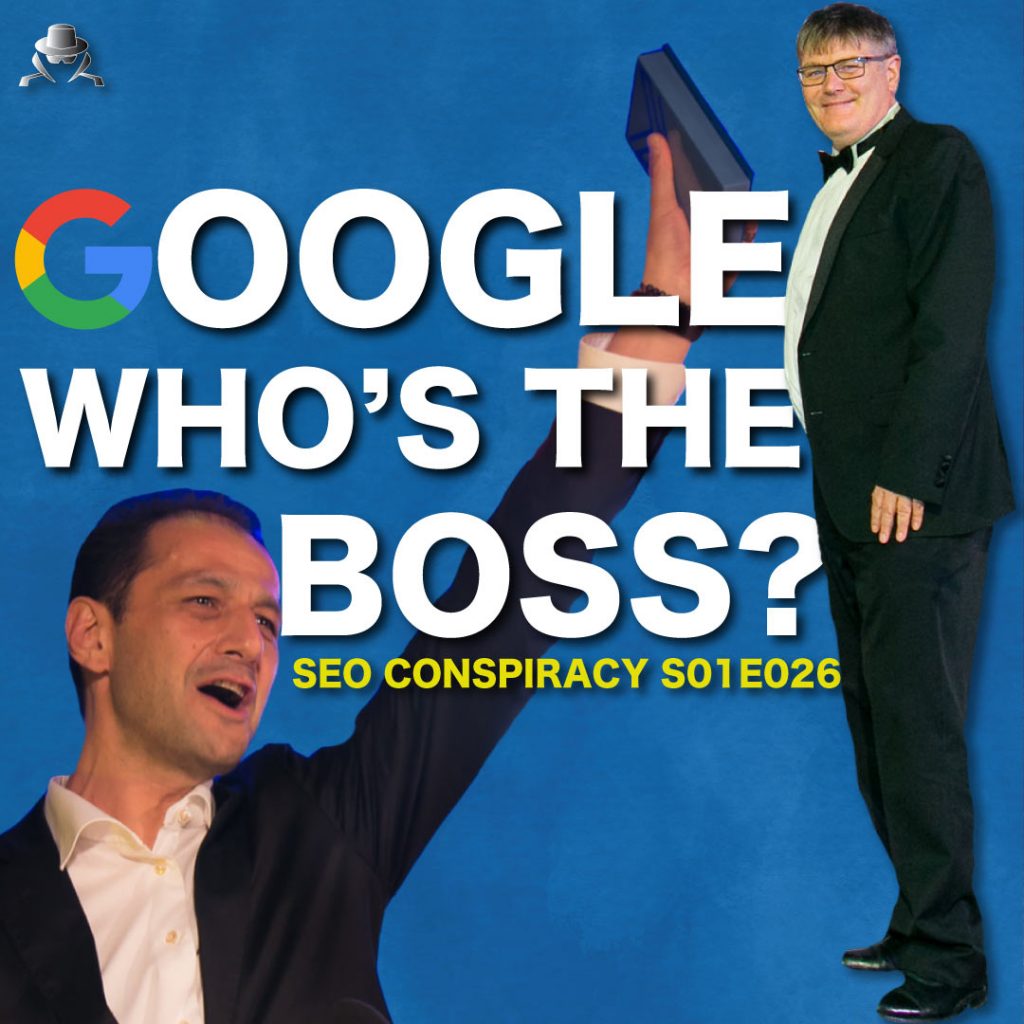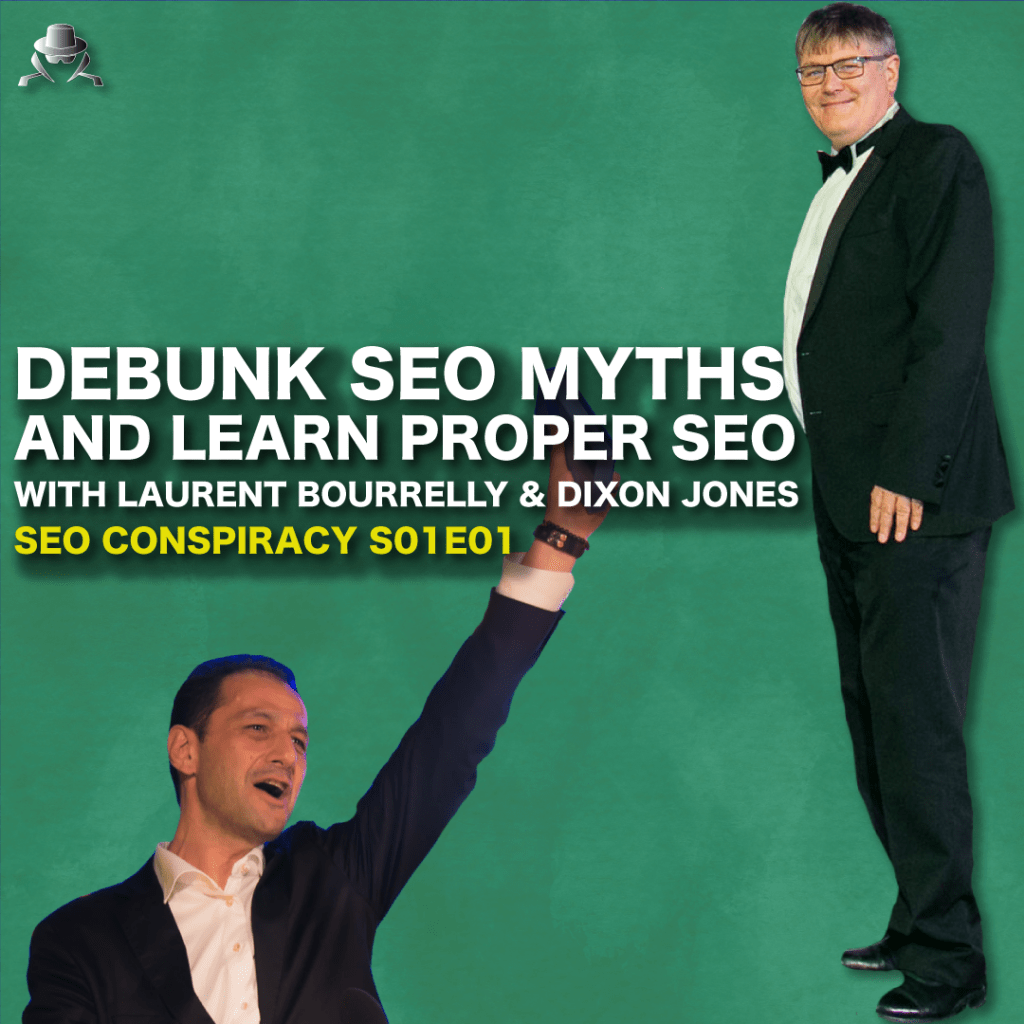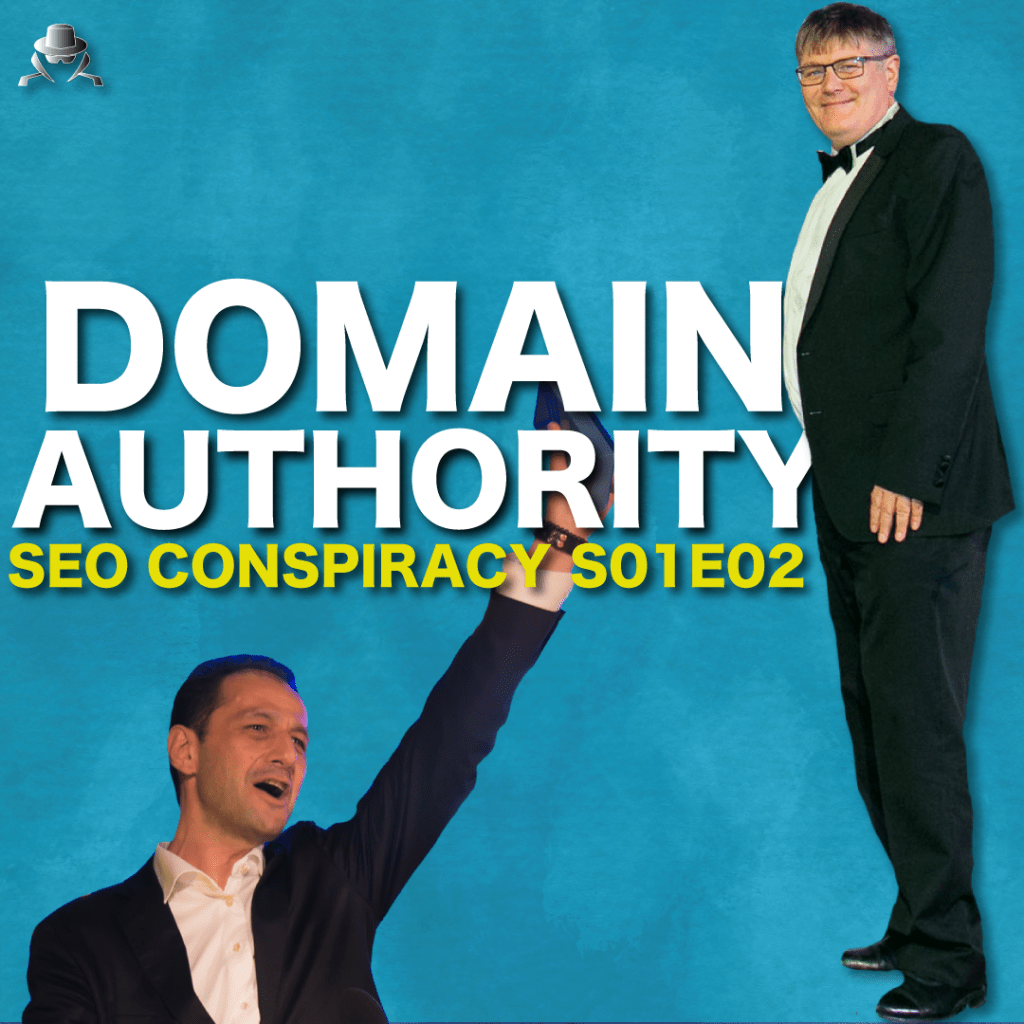Who is truly in charge at Google?
SEOCONSPIRACY S01E26
Who runs Google and mainly, who runs Google Search? We know that Larry and Sergey have gone. They’re still consultants, but they’re not technically on the board.
They have shares and get lots of money every second, but they’re not running things anymore.
So, what’s happening who’s running it?
Larry Page & Sergey Brin: Google was just a College project?
Larry and Sergey, it was part of their diploma. Google, the Search engine, was a project in college in the 90s.
So I think that mentally, they can’t connect anymore.
Amit Singhal left.
We knew his style, values, and what he wanted to achieve that was one path one way of building a search engine, and he’s the one who made Google the search engine.
Larry and Sergey started it, but he redefined the PageRank, spam, relevancy, etc.
He created all the scale, but he made a web page focused search engine, trying to index the web, and the web got too big.
So you know, at some point, it turned over to topics and entities and that kind of things and rank brain, it looks like at the top of the search it’s not easy to find on google, but it seems like at the top of search we’ve got somebody that came out of the meta web purchase is that right.
For a long time, I feel that those two ideas of a machine learning-based approach and sort of an old-school approach were competing as central ideas. I think they were competing probably at a human level and on the algorithm level, but I believe they commit themselves more and more to the machine learning approach.
Google: who is running the show?
That’s the conspiracy.
The fact is & it’s an oversimplification, I’m guilty, you’re guilty when we say Rank Brain is the boss at google. It’s a troll because Rank Brain itself doesn’t do anything.
I’ve been asked what the ten most essential SEO concepts for Google are. It’s is entirely impossible, so I had to come up and say: “Look, you can’t get those right, but what you can do is look at the goal.” And the one that is published is, of course, the quality rater guidelines, which are the judges. So those humans are the judge of Google’s algorithms. They’re using humans that are using the quality rater guidelines to judge the success of the algorithms. The algorithms can then come in and out a thousand times a day, and then they’re getting scored, so the machine learning is effectively getting scored.
So I think that they have to use machine learning and AI to start generating different versions of results far faster than any manual algorithm change can do, so it has to be a sort of a machine learning ai.
But yeah, it’s too far in the google mothership for anybody outside to see.
The way it works is an engineer is working on something particular it has a broad idea of what’s going on in the overall.
You can see that where there are people open to, you know, talking to us on the front end and stuff.
On the javascript side, Martin Splitt is very open about what they’re doing with the rendering. he’s in Zurich he’s not in Mountain View
Everybody is his boss, but he’s honest about what he’s doing, and it’s fascinating to see you know he’ll do something. He doesn’t know whether that’s going to end up as part of the ranking system. All he knows is his role is to try and make it so that Google can better render javascript without, you know, overloading the servers and the system and stuff, and it’s interesting to watch him work.
In lockdown, he’s doing twitch TVs so basically as he’s doing coding and stuff he’s doing on open source stuff, so he’s not doing any secrets from google secrets, but you know he’s showing you his things and stuff. It’s great to pop in and look, you know my coding skills are not anywhere like his, but it’s still interesting to see. I think it’s the same with most Googlers on the development side. As you say, they try to make things better, and whether that thing then ends up as part of the algorithm is entirely due to AI and machine learning. Various other bits and pieces then have to be subject to one of those launch meetings where they discuss whether to implement somebody’s change, and you have to move back.
The head of Google Search is way off the head of Google Alphabet; they’re entirely different people.
In the quarterly reports, there is no mention of google the search engine anymore; the only statement on the last report was, “oh, there’s a peak of search around the COVID topic.”
That’s it. That was the only mention of the search engine.
Now our entire industry is focusing on something that Alphabet sees as a cash cow. They put more resources into the cloud, into all the revolutionary, changing the world type of thing than the search engine.
So now, within the search engine, what is the scope of evolution?
We spoke about it last time a couple of weeks ago when we said machine learning is dumbing down the information.
Well, it’s also a fact if you check a query with a little nuance a little finesse, it’s because the page is formatted in a certain way that a robot can understand it’s going to rank in the top-level or the microformat type of listing. Still, this information is a bullet list of how to pick what wine to drink with a coq au vin, okay.
What Google can do, is to decide that “right, we think we know how to tie a bow tie. We’ve got this data from the FAQ schema that’s just been given over this website over here. Now, I’m seeing all these other web pages that are also talking about how to tie a bow tie; I can then blend this information into my knowledge graph and have my database record on how to tie a bow tie.” So “how to tie a bow tie” becomes an entity in its own right or “tying a knot and bow tie,” the relationship between them.
At that point, the real danger for SEOs is that Google can then argue that it’s their information and nobody else’s information. Because it’s a blend of so many other bits and pieces that you couldn’t say whose information it was, so there’s no point in Google then citing their data source if their data source comes from 20 different sources.
If you want to give out if you’re going to format a specific type of emulation to appear in the people also ask or knowledge graph, any of the stuff, control it because you are giving out the information. People are not going to come on your page. It’s part of the branding marketing side of the business.
So be careful about what you’re giving out.
My way of doing it is I put it in a specific part of the site, usually like a question-answer type of section of the site this is the food for the microformat this is the food for and the rest of the site is controlled with information that I leave Google to crawl.
But all of the other categories are behind the walled garden, and you need a paid account to see so can’t get to that. I think it’s the right approach anyway; you only give google what you can give away to everybody for free. You can’t give google the stuff that you’re trying to charge for.
And you have to agree to play the game. You can’t complain if you are a news site and you format the information it’s all taken swallowed by google and all the other ones, that’s the name of the game you can’t
complain afterward.
And if you didn’t know well, that’s even worse.
To end up on this topic to clarify, I think the main idea here is if we relate to the latest core update in May 2020, that’s ranking signals being changed, but it wasn’t it. It’s just a more like a realignment
because machine learning went too much one way, so with the core signals, they’re trying to balance out what the machine learning because it’s too flat.
A robot has no heart has no soul, an algorithm doesn’t have a soul
A few years ago, the people who did google were putting a little more human touch into the algorithm.
It’s essential in the system. I think that’s why Google hasn’t got rid of a human’s in the loop.
It’s essential to even for the algorithm, so I think this is one reason why Wikipedia has become such an important data source for their machine learning algorithms and stuff because it starts with a human in the loop. If google’s results don’t contain passion, Bing’s works seem to have some more passion sometimes than googles do and I think that
if they want to keep people using google search, they need to keep that passion in the system.
But maybe the algorithm is all about trying to get some of that diversity back into the system. I suppose they also have one eye on the American election, so they don’t want to make sure they don’t get screwed by you know complaints of bias in the American elections.
Who knows that’s a possibility, but I think you came in with the point that the old guard has moved aside and not just the old guard, also the philosophies of the old guard and now AI is, google search is being led by ai concepts, machine learning concepts, entity-based approaches and that will continue, and it’s hard to keep on trying to think about things in terms of keywords when google has moved so much into the idea of topics and concepts
my final advice would be to educate yourself about what is supposedly AI, what machine learning is, what deep learning is.
Dixon Jones recommends a book called Entity Oriented Search by Krisztian Balog
Laurent recommends Bootstrapping machine learning by Louis Dorard.
If you have any questions, feel free to ask us!
Listen to the podcast
Watch the video
Latest posts



